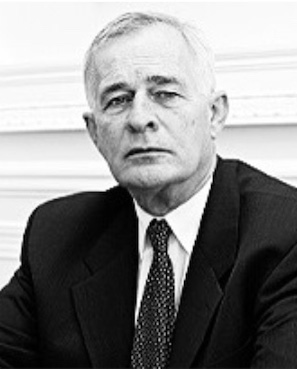In Memory of Professor Piotr Węgleński
 Piotr Węgleński had been associated with the University of Warsaw since the beginning of his studies. He completed his master’s degree and PhD (in 1961 and 1965, respectively) under the supervision of Professor Wacław Gajewski, an outstanding geneticist. After graduating, he joined the Department of Genetics, led by his doctoral advisor.
Piotr Węgleński had been associated with the University of Warsaw since the beginning of his studies. He completed his master’s degree and PhD (in 1961 and 1965, respectively) under the supervision of Professor Wacław Gajewski, an outstanding geneticist. After graduating, he joined the Department of Genetics, led by his doctoral advisor.
He taught genetics lab classes for the group I was part of in 1969, as a third-year biology student at the UW. The lectures were given by Professor Wacław Gajewski—fascinating ones—but I remember little from the lab sessions. However, in my fifth year, I attended departmental seminars and a course on ‘Gene Expression Regulation’ taught by Dr Węgleński. That course made me become a geneticist. Dr Węgleński would walk in with the latest issue of ‘Nature’ and share the most current research developments. No one else lectured like that—most lecturers showed up with yellowed notes, even though biology was rapidly evolving at that time.
By 1971, he was essentially running the Department of Genetics at UW alongside Professor Gajewski. He decided to hire two recent biochemistry graduates—Piotr Stępień and myself—thereby expanding the department’s research scope. Although he wasn’t formally my doctoral supervisor (he hadn’t yet completed his habilitation, and the role of assistant advisor didn’t exist), he was in practice. Some of the results from my thesis were published in ‘Nature’.
He was a fantastic supervisor—never imposing, always open to discussion, full of ideas, with a clear vision for the future: what was promising, which techniques were worth adopting, where one could learn something new.
After his second research stay at the Massachusetts Institute of Technology (MIT) in 1974–1975 (his first was in England and focused on classical genetics), he returned to Poland fully convinced of the need to introduce genetic engineering. He participated in the famous Asilomar Conference in 1974, where the future of genetic engineering was debated. It was with this in mind that he arranged my postdoctoral fellowship at MIT in 1976–77, just as the field was gaining real momentum.
Thanks to his foresight, the Department of Genetics at the UW became the first in Poland to clone genes. The enzymes produced and the know-how developed there were made available to many laboratories across the country. His broad vision for the advancement of science also included the early recognition of the importance of computerizing the university.
The main thread of his research focused on gene expression regulation. In later years, he also worked on fish genetics and ancient DNA at the UW Centre of New Technologies. Since his first research stay abroad, Professor Węgleński’s studies had been centered on the regulation of genes involved in arginine catabolism in the model organism Aspergillus nidulans. Over the years, these studies evolved to incorporate various emerging techniques—the last paper in this series was published in 2022.
He was also an excellent science communicator. The academic textbook ‘Genetyka molekularna’, edited by him, went through many editions. He introduced the tradition of university public lectures—the ‘Eight Lectures for the New Millennium’ series, which he initiated in 2000. These monthly public events, held on the UW’s main campus and featuring top scientists from various disciplines, continue to this day.
As Rector of the University of Warsaw, he oversaw the construction of the new university library and the establishment of the Centre of New Technologies.
Prof. Ewa Bartnik